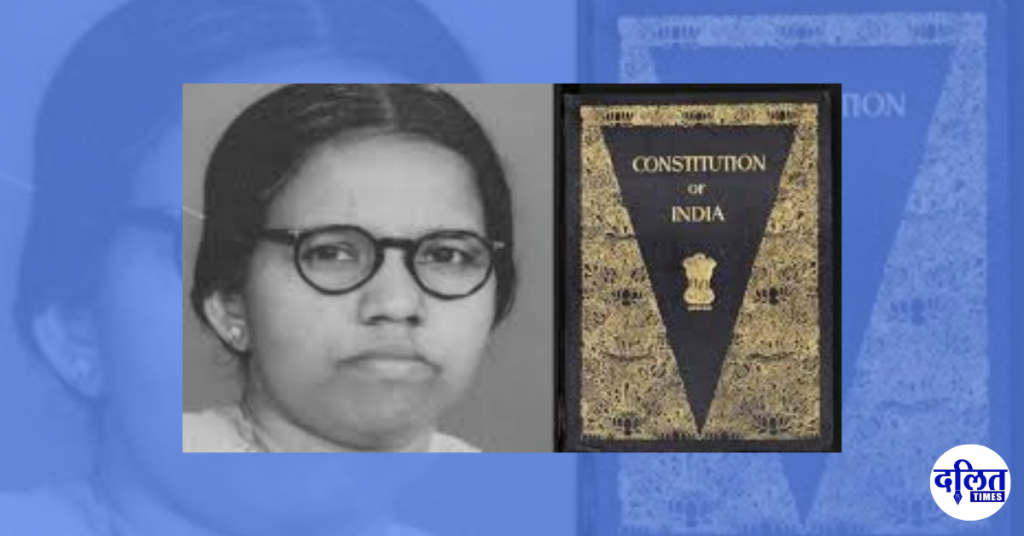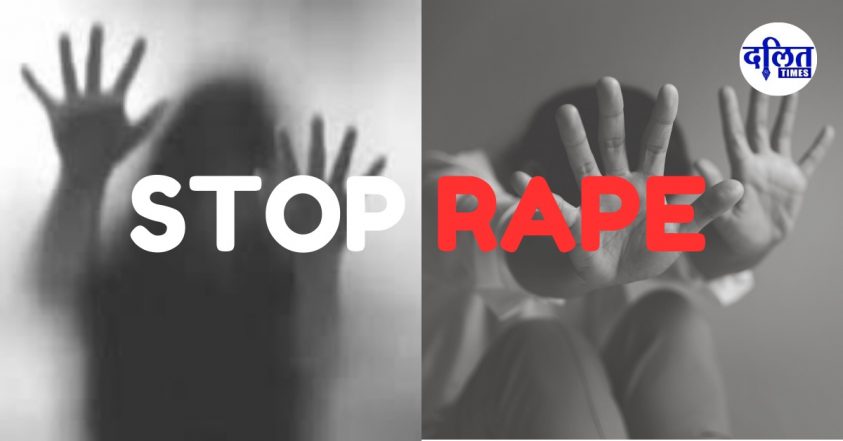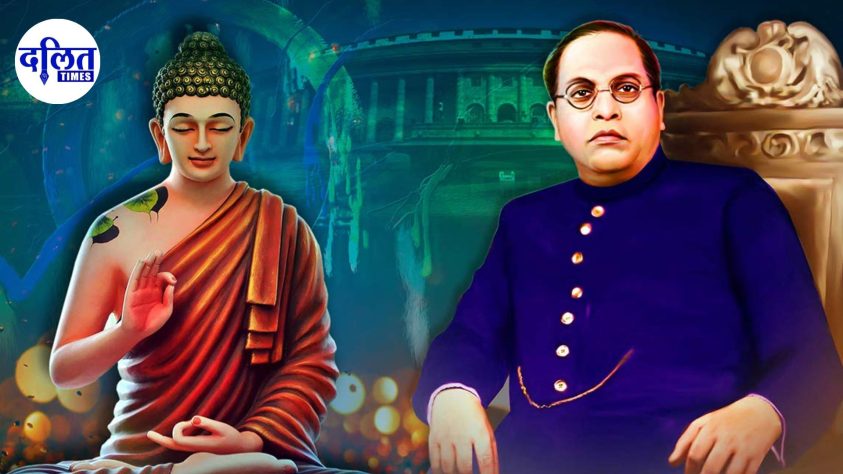(Bindu Ammini, Advocate, Writer, Dalit Feminist and Legal Advisor of Dalit Times)
In the annals of Indian history, few figures shine as brightly as Dakshayani Velayudhan, a woman who defied societal norms to etch her name into the fabric of the nation’s democratic framework. A relentless crusader for social justice, gender equality, and Dalit empowerment, Dakshayani’s contributions continue to inspire generations.
In 1935, at a time when caste and gender barriers were near insurmountable, Dakshayani Velayudhan shattered societal constraints to become India’s first Dalit woman graduate. Earning a B.Sc. in Chemistry from Maharaja’s College, Ernakulam, she not only carved a space for herself in academia but also paved the way for countless marginalized women who aspired to break free from the shackles of oppression. Her achievement was revolutionary in a rigidly casteist society where Dalits, especially women, were systematically denied access to education.
Belonging to the Pulaya community, one of Kerala’s most oppressed Dalit groups, Dakshayani was a living testament to resilience. She was among the first Pulayar women to wear an upper cloth, a simple yet powerful act of defiance against a casteist tradition that sought to strip Dalit women of their dignity. This bold assertion was more than just a personal statement—it was an audacious political act that challenged centuries of systemic oppression and caste violence. Through this, she symbolized the assertion of bodily autonomy and human dignity in an era of rampant discrimination.

At just 34 years old, Dakshayani Velayudhan became the only Dalit woman among the 299 members tasked with drafting India’s Constitution. Her presence in the Constituent Assembly was nothing short of revolutionary. She passionately advocated for the rights of marginalized communities, tirelessly pushing for social justice, gender equity, and caste annihilation. Dakshayani firmly believed that democracy should not only exist in constitutional texts but must be deeply ingrained in the daily lives of people.
Her words in the Assembly remain an eternal call to action:
“It is for us to see that the spirit of the Constitution is not only preserved by the letter of the law but by constant practice in our daily lives.”
This sentiment underscores her conviction that true equality is not just a legal provision but a lived reality, cultivated through persistent effort and conscious practice.
Unlike many of her contemporaries who favored a strong central authority, Dakshayani critiqued the over-centralization of power in the Draft Constitution. She championed decentralized governance, arguing that grassroots participation was fundamental for an equitable democracy. Her forward-thinking vision remains relevant today, as India continues to navigate the balance between centralized control and regional autonomy.
Beyond her legislative role, Dakshayani was deeply committed to the cause of women’s rights. In 1977, she established the Mahila Jagriti Parishad in Delhi, an organization dedicated to promoting women’s empowerment. She believed that true progress could only be achieved when women, especially those from marginalized communities, were given agency over their lives. The organization became a beacon of hope for countless women striving for independence and equality.
Recognizing her immense contributions, the Kerala government instituted the Dakshayani Velayudhan Award in 2019. This honor celebrates women who have made significant strides in uplifting and empowering others, carrying forward the torch of social justice that Dakshayani lit decades ago.
Dakshayani Velayudhan Women’s Studies Centre launched in Sree Sankara University Kalady on 2022
A prestigious fellowship has been instituted in hounour of dhakshayani Velayudhan the sole Dalit women in the constituent Assembly. M.G university launched Dakshayani Velayudhan Digital Archives on 2024.Government of Kerala included the life of Dakshayani Velayudhan in the school curriculum recently.
Dakshayani Velayudhan’s life is a testament to the power of perseverance, intellect, and unwavering courage. She not only dismantled oppressive structures but also laid the foundation for a more inclusive India. Today, as we reflect on her journey, we reaffirm our commitment to the ideals she fought for—education, equality, dignity, and social justice. Her legacy is not just a chapter in history; it is a clarion call for future generations to rise, resist, and reclaim their rights. In honoring Dakshayani, we honor the countless voices she represented and the battles she fought so that others could dream freely.



